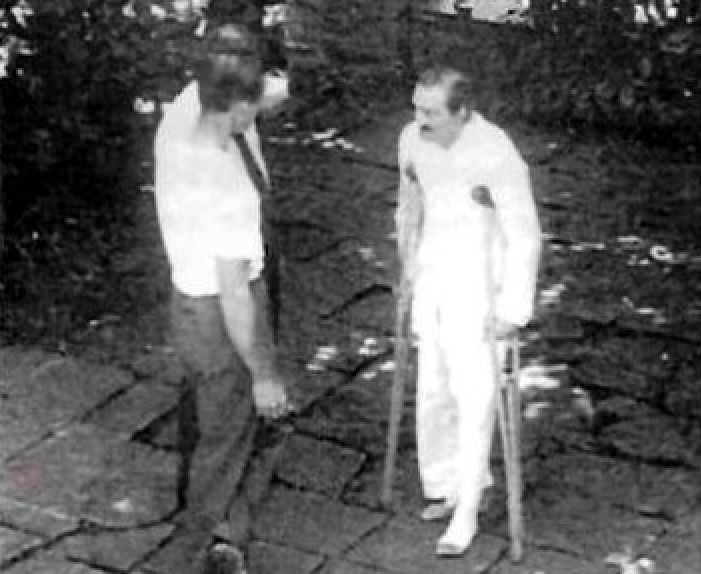
May 29, 2020
Small Kindness
This time, in reading over the accounts of Meher Baba’s accident in 1952, I noticed the kindness.
It was there from those first excruciating moments when, on the morning of May 24, 1952, Stanley J. Moucka, living along Route 64 near Prague, Oklahoma, heard a crash and ran out of his house. There it was, the smashed Nash that had been carrying Meher Baba and four of His close Mandali on a cross-country trip from the Meher Center to California. Elizabeth was trapped behind the wheel of the car with broken ribs and arm, her first question, “Is He alive?” Mani was in shock, Meheru had a fractured arm and hand. Meher Baba was lying face-down in the mud, covered in blood, His beloved Mehera bloody and semi-conscious beside Him.
Moucka ran to the victims. He covered them with blankets from the house, and flagged down a passing car—two more strangers, a man and his pregnant wife who were on the way to the hospital, and said they would send help immediately. He comforted Mani, who was on her knees in the mud by Baba and Mehera, and years later she remembered the kindness with which he repeated his answer to her desperate inquiries: that the ambulance was “coming… it’s coming.”* The mother of the man who had been driving the other car climbed out, unharmed, and started using her handkerchief and some water to wipe Mehera’s face.
They were taken to the hospital where the town doctor, Dr. Burleson, known in the community for his goodness and generosity, leapt to work to help them—especially Mehera, who had a badly fractured skull and who he thought might not survive. And as he tended to the victims, and in the days after as they all began to heal, there were more moments of kindness. A shopkeeper asked about the sufferers, giving the group her only basket of strawberries, which she had been planning to take home. A neighbor bought a cup of coffee for the shocked, exhausted Mani. The owner of a restaurant, overhearing talk about them being unable to find flowers to buy, offered them the magnolias from his front yard, which Baba later gave specially to Mehera.
Four years later, when back on the Center, looking out over the lake, Meher Baba said, “The source of Eternal Bliss is the Self in all… all suffering is his labor of love to unveil his own infinite Self.”** To me, these acts of kindness throughout the agony of the accident and its aftermath were an affirmation of the Self in all: that we give care to strangers because there are no strangers. In each tiny, seemingly insignificant act was a flicker, a glimmer of the vastness of God’s love, hidden underneath.
* Mehera-Meher: A Divine Romance, David Fenster, Vol. 3, Pg. 41
** Lord Meher Online, Bhau Kalchuri, Pg. 4041